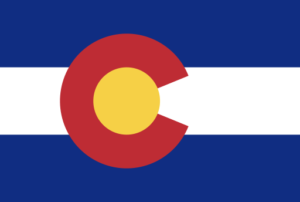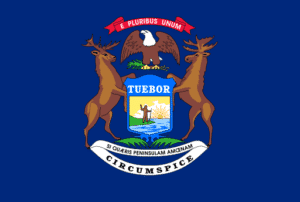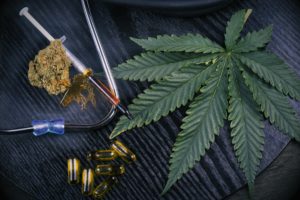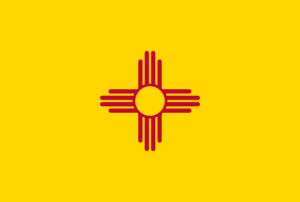In this post, Quantum 9 marijuana consultants discuss recent cannabis flower recalls in several states, including Colorado.
As a cannabis business owner, can you rely upon state-mandated laboratory testing for your product? What can you do when the state retests your marijuana flower product after it has gone to market?
Recent cannabis flower recall in Colorado
The Colorado Marijuana Enforcement Division (MED) recently issued a mandatory cannabis flower recall. The MED issued the recall for products made by one of the largest operators in Colorado, LivWell Enlightened Health.
LivWell sold this cannabis strain “Gelato Cake” between December 30, 2021, and January 20, 2022. However, it soon discovered potentially unsafe levels of total yeast and mold in the cannabis flower product. It immediately pulled the entire batch and self-reported the incident to regulators.

The marijuana product contamination occurred during cultivation processes not long after the producer merged with Chicago-based multi-state operator PharmaCann last October.
Quoted in a recent Ganjapreneur article, Chicago-based cannabis licensing consultant Michael Mayes described the mega private acquisitions between LivWell and PharmaCann as “gigantic.” He estimated the deal for LivWell to likely be in the “hundreds of millions” of dollars.
Cannabis product recalls in other states and inconsistent timing of lab testing
In the case of the Colorado recall, did the private mega-acquisition cause disruption in the quality of cannabis production? No, more likely it is a case of post-production contamination as in other states.
The Colorado cannabis industry is not the only state to recently issue mandatory marijuana flower recalls. However, the recalls resulted in a variety of reactions and legal maneuvers as well as reactions in different states.
Some recent state cannabis flower and product recalls include the following:
Michigan

The recall in 2021 was prompted by Marijuana Regulatory Agency (MRA) questioning results from Viridis, a Michigan-based laboratory with two locations. Retests following the recall found batches containing higher than allowable levels of yeast and mold.
Similarly, as in Colorado’s recall, the lab found some examples within batches to contain potentially dangerous and banned fungus, Aspergillus niger. It is a fungus commonly known as “black mold,” and can cause lung infections leading to death.
Black mold is a major contributor to the spoiling of fresh fruit, and even nuts, cereals, and grains after harvesting. According to the Center for Disease Control (CDC), most people breathe in black mold spores every day without getting sick.
However, people with weakened immune systems or lung diseases are at a higher risk of developing health problems due to black mold.
A state judge reversed parts of the recall. Michigan regulators then said they had few options but to release the marijuana that failed retest for possible sale. A spokesman for the MRA told MLive in January 2022 that some products failed safety testing. Yet regulators still released the product back to store shelves with no packaging or labeling warning customers of potential danger.
To find our more about licensing in Michigan, contact our Michigan Marijuana Consultants.
California

California’s Department of Cannabis Control (DCC) issued a recall in January for a batch of packaged cannabis flower produced by Claybourne Co. The recalled product was sold in various size jars between November 2, 2021, and January 26, 2022.
The DCC and a third-party laboratory identified a batch of this “Headbanger” strain to be contaminated with the pathogenic fungus Aspergillus niger, similarly to the Michigan recall.
The state is still investigating the cause of this cannabis flower mold contamination. In the meantime, the cannabis company risks losing much in production, profit, and consumer reputation. To find our more about marijuana flower recalls in California, contact our California Cannabis Consultants.
New Mexico

Product recalls can cost a cannabis business millions of dollars in profit loss due to disruption of production. If it’s determined that the company, its management, and/or employees were negligent, civil damages and criminal action may follow.
Even just the rumor of a faulty product can damage a marijuana business’s reputation and the trust of its customers. Costly litigation and delays in production often result.
Take the case-in-point of cannabis producer Sacred Garden, based in New Mexico. The New Mexico Cannabis Control Division (CCD) issued them an order to “cease and desist” all production and manufacturing. CCD issued the order just weeks before the start of legalized recreational marijuana sales on April 1, 2022.
The cannabis flower products passed mandated pre-sale laboratory inspection. However, after a patient complaint, the CCD investigated the company’s cultivation and dispensary processes. It determined that mold contamination may have occurred post-production.
The CCD has still not determined if this occurred due to improper handling and storage during transportation and retail processes. Sacred Garden sought and received a judge’s injunction to allow the sale of their other cannabis products while the investigation is pending. For more information, contact our New Mexico Cannabis Consultants.
Pennsylvania

In February 2022, the Pennsylvania Department of Health issued a recall for vaporized products it had previously approved. It stated that some added ingredients in the cannabis product had not been approved for inhalation by the FDA. But the FDA does not approve or regulate vaporized cannabis products.
Meredith Buettner, executive director of the Pennsylvania Cannabis Coalition (PCC) recently spoke with the Pittsburgh City Paper. She said, “The state is trying to apply a standard that does not exist.” Growers and dispensary owners are concerned that patients may turn to illegal marijuana products if they can’t buy them legally.
The importance of cannabis flower recalls and consumer health
Black mold contamination poses a danger for marijuana consumers with compromised immune systems. All states, with legalized marijuana, require product quality testing by state-approved laboratory facilities.
Third-party testing labs and the MED discovered the LivWell flower product contamination. The requirement for legalized and regulated marijuana product testing is good for consumers.

Such regulations assure cannabis consumers that their state regulatory agencies back the safety and purity of the cannabis product. As with the auto industry, legal consumers expect alerts of potential defects affecting their safety.
Consumers pay for regulated marijuana products because they want a safe product of known ingredients and effects. Therefore, the consumer expects the best quality, purity, and precise ingredient labeling in regulated products.
Regulations require no mold or chemicals throughout the life of the cannabis product for sale. On the other hand, street marijuana sellers may add unknown fillers and adulterants, reported to be contaminated with fentanyl. Legal marijuana consumers appreciate mandatory quality testing for their health and safety.

In conclusion, don’t let marijuana flower recalls or “cease and desist” orders disrupt your cannabis business reputation. Our experienced cannabis business consultants help you navigate state laboratory testing, quality assurance, and public relations within the cannabis industry.
Contact our expert cannabis business consultants at Quantum 9 and discover how to plan your cultivation and manufacturing marijuana business. Learn how to handle potential laboratory test retakes of your product quality from seed to sale.










